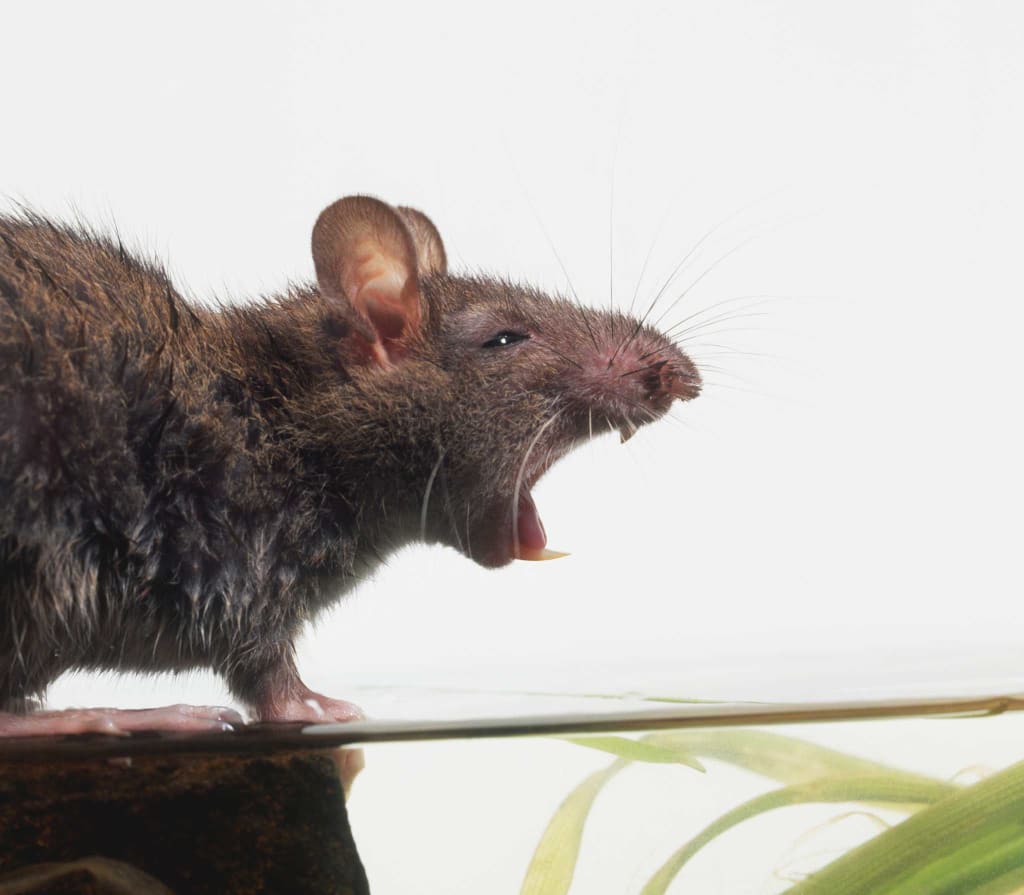Branded as a Rat
A story from Hawaii shows the challenge for brands in the digital age. Indeed, one Snapchat can change the trajectory of a company in an instant these days.

This is the kind of story that gives top executives of any service-oriented business today nightmares! In our age of social media, it only takes one story, one post, one video, or one picture to possibly sink your business! One bad customer interaction or one disgruntled employee's action can become a viral video in an instant. Literally, this can place your business—no matter the industry, no matter the size, no matter the location, no matter of anything—instantly on the defensive, and if that story doesn't kill your business, it could well cripple it or at least make a huge dent in the firm's top and bottom lines. And that damage can be lasting for an indeterminate amount of time in the consumer mins. Indeed, there will be some consumers that you may never be able to reach after one of these incidents.
So what do executives sleeping in silk pajamas dread at 3 AM in the morning? Well, it would be getting a call that something like the new that executives at Teddy’s Bigger Burgers, a growing Honolulu-based hamburger chain, recently received. Something bad—really bad—happened in one of their restaurants, and now millions of people know about it, thanks to a viral video that was posted and quickly spread all over the internet.
For Teddy's—a chain that has been rapidly expanding with franchise locations far beyond its Hawaii roots, breaking into the mainland market in California and Texas, and opening locations in foreign countries from Japan to Saudi Arabia—this is one of those tests of leadership. It is a case from "Crisis Management 101" coming to life and exploding right in your face. So, what happened, and how should they—howcan they—best respond?

The headline in this case does say it all, and if you're in the restaurant business, well, it's about as bad as you could possibly imagine a bad scenario to be. So, when the local story hit the Associated Press wire with the headline, "Hawaii burger eatery closes after video seems to show rat cooking," this became not just a local story, not just a business story, but an international story. The story was picked up by leading newspapers and news sites all over the country, and indeed, all around the world. From newspapers running the AP story and headline in the Las Vegas Review Journal to the New York Times. The headlines only got worse as news sites, from newspapers, TV stations, and networks added their own "spin" on the AP story. From London's Independent (Hawaii burger chain closes restaurant after Snapchat video appears to show rat cooked on grill) to the always creative New York Post (Burger joint shutters after video shows workers grilling rat) to Fox News (Burger restaurant closed after viral video shows employees cooking rat on grill) and to my local, Baton Rouge, Louisiana television station's (WAFB-TV) take on the story (‘Horrified’: Hawaii fast food eatery fires employee after video shows rat being cooked on grill), one can only imagine the anguish and angst that the chain's management—and indeed, their employees, too—faced when they Googled "Teddy's" and "rat." And if they were horrified, what would their customers think?
Immediately, Teddy's was forced into a DEFCON 1-level crisis because of what happened. And so just to get it out of the way, by the series of headlines you read in the last paragraph, you basically know the story of what happened at the Teddy's Bigger Burger location on Mapunapuna Street in Honolulu, located in a popular shopping area not far from a point many know having been there as the gateway to Honolulu and the rest of the Hawaiian Islands, the Daniel K. Inouye International Airport. If you are eating at your desk reading this story or have an aversion to such things involving dead rats and food, then simply skip down a section or two on the page.
However, what happened was this. A disgruntled teenage employee at the restaurant chose to express his frustrations at the company, at his manager, life or... whatever in about as damaging a way to the restaurant chain as one could ever be imagined. He posted a video of himself and a coworker on Snapchat grilling a rat on the burger grill after hours at the Teddy's restaurant where he worked and added the line "I think it's time to quit Teddy's" to his video ("worked" was—no shock—past tense for him—and the coworker in the video—since the video appeared!). In the interest of keeping your lunch in your stomach, we'll spare showing you the video itself or one of many still screen captures made of it—safe to say, it's everything you would imagine it to be, only worse!
Of course, no one was surprised when the video got shared and embellished, as with the post below with the warning about what was happening at that Teddy's location. And then it got shared, and shared, and shared, and shared... and soon, the Teddy's name wasn't associated with "Bigger Burgers." There was one word suddenly associated with the chain - and that one word was "rat!"
Suddenly, the executives of the burger chain not only faced a food safety issue, but they also faced a PR and branding crisis that threatened their business on an existential level!
The first thing they had to do, of course, was to rectify the situation at this particular Honolulu location. As mentioned previously, the two employees involved were gone—and the company says it is considering legal action against them. The company closed the store where the incident happened immediately, and posted a sign stating that it had been closed for "maintenance and cleaning" (yes, the understatement of the year!). The restaurant underwent what the company described as a “complete sanitization”—including the replacement of kitchen equipment and utensils. The restaurant also had a licensed pest control operator work to assure that there were no rodents present in the location, and additionally, worked closely with Hawaii's State Department of Health in inspecting the restaurant before it reopened.



To their credit, Richard Stula, the president of Teddy’s Bigger Burgers, is taking ownership of the situation, stating in the widely-disseminated AP story that: “We are horrified that a former teenage employee would conduct themselves in that way and make such a video... trying to destroy our reputation without regard for our 20-plus years of quality and aloha.” However, on the down side, outside of this comment to the media, the restaurant chain has been silent on the matter on its website, on its Facebook page (Teddy's Bigger Burgers), and on its Twitter (@teddysburgers) and Instagram (teddysburgers) accounts.

So, if you are Teddy's, what do you do now? Well, in the digital age, when a crisis like this hits, you have to realize that you can't localize such an event. You have to be change your mindset from being reactive (how could this happen in one of our stores) to being proactive (how do we assure our customers and our employees that this is not us and will never happen again). You have to be upfront, clear, and consistent in your messaging, and in this chain's case, with an impressive array of food offerings (their website, will make you hungry!), they do have a good, quality food message to sell. They need to be monitoring social media carefully for some time, since we are less than a week out from "the incident" going viral. This is the kind of story that will—no bad pun intended—have legs. As such, and knowing that the video has been shared literally around the world and news stories about what happened will exist on the web forever, this situation will need to be monitored for months, maybe years to come.
And then there is the marketing aspect of all of this. If you are Teddy's, you need to redouble your marketing and branding efforts. Advertising: Buy more! Social media: Be more active! Community relations: Seek to do more good! Promotions: Give away more burgers and chicken sandwiches! You have to face the fact that this negative story is out there—one that may even grow in an age where things on the web cannot just go viral, but can become almost like urban legends. As such, you should work with your franchisees in Hawaii, and even those beyond the islands, to reassure them that you are on top of things, that you have a marketing strategy to promote the many good qualities that the chain has, and that you will work with them to have a plan going forward to make certain that each Teddy's restaurant is a place where hopefully the work environment is such that culturally, this should not—and must not—happen again. In short, you might get away with one rat video, but not a second!

So hopefully this story will be looked upon in the future as having been but a blip in the trajectory of this growing restaurant chain. However, for all the restaurant, all the fast food, all the retail, and indeed, all the service industry executives out there, this rat story is indeed the stuff of nightmares. In response, you should ask yourself a simple question: Am I ready—and is my organization—ready to handle such a crisis management situation should we be the next trending story or viral video on the internet?
About the Creator
David Wyld
Professor, Consultant, Doer. Founder/Publisher of The IDEA Publishing (http://www.theideapublishing.com/) & Modern Business Press (http://www.modernbusinesspress.com)






Comments
There are no comments for this story
Be the first to respond and start the conversation.